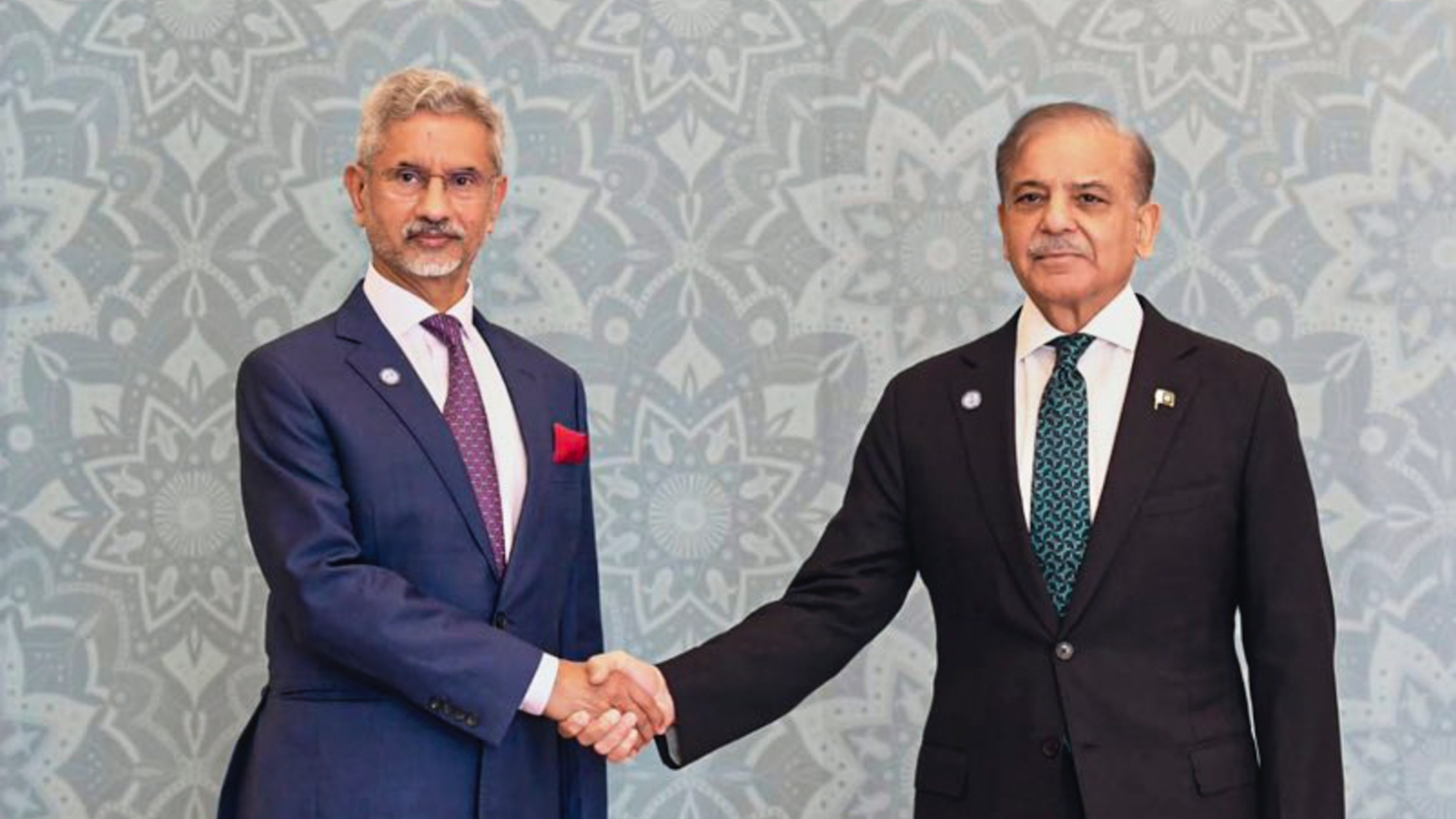 |
|
The recent visit of Indian External Affairs Minister (EAM) S Jaishankar to Islamabad for the Shanghai Cooperation Organisation (SCO) meeting of the Heads of Government on October 16 has sparked a tentative but encouraging easing of tensions in the complex and often strained India-Pakistan bilateral relationship. This high-level visit, the first by an Indian cabinet minister in nine years, signifies a significant shift after years of limited political contact between the two neighboring nations. While the visit wasn't anticipated to resolve longstanding bilateral issues, the absence of any acrimonious exchanges between India and Pakistan, a stark contrast to the SCO meeting in Goa in May 2023, points towards a more positive atmosphere. Notably, there were no contentious references to Kashmir or the abrogation of Article 370, contributing to the positive tenor of the visit.
Beyond the formal SCO agenda, Jaishankar met with his Pakistani counterpart, Ishaq Dar, who also serves as the Deputy Prime Minister and a close confidante of former Pakistani Prime Minister Nawaz Sharif. The two ministers engaged in convivial conversations over lunch and dinner, capturing the attention of media outlets in both countries. This seemingly casual interaction sparked immense interest in the possibility of reviving cricketing ties between India and Pakistan. Pakistan's hosting of the Champions Trophy in February 2025 offers a potential opportunity to re-establish people-to-people connections through cricket, a sport that holds immense cultural significance in both nations. While reports initially suggested a possible return of cricketing exchanges, these have since been denied.
Despite the positive signals, both sides are proceeding cautiously, emphasizing the informal nature of the conversations and stressing that these were merely preliminary discussions requiring further consideration. This cautious approach is understandable, considering the history of false dawns in the India-Pakistan relationship. The experience of Prime Minister Atal Bihari Vajpayee's visit in 1999 serves as a stark reminder of the fragility of peace efforts. Following the nuclear weapon tests by both India and Pakistan in May 1998, both countries entered into the Lahore Accord in early 1999. Vajpayee's historic bus journey across the border symbolized a commitment to peace and amity with a neighbor that had become an adversary. However, this ambitious agreement was short-lived as the Pakistan army, led by General Pervez Musharraf, initiated covert plans to seize Indian territory in the high Himalayas. This resulted in the Kargil War of 1999, and since then, meaningful progress towards restoring trust and amity has been elusive.
Prime Minister Narendra Modi, during his first term, made an attempt to improve ties with Pakistan, culminating in a dramatic visit to Lahore in December 2015. However, this impulsive initiative did not yield any substantive progress on the peace agenda. If anything, it emboldened the deep state in Rawalpindi to escalate terror activities. The February 2019 Pulwama attack and the subsequent Balakot air strike effectively relegated India's relations with Pakistan to the back burner. India has since held Pakistan accountable for its support of jihadi terrorist groups, and at the UNGA in September, Jaishankar condemned Pakistan for exporting terrorism and nurturing radicalization.
In this context, Jaishankar's visit with its positive overtones offers a glimmer of hope amid a challenging situation. How the Modi government chooses to engage with Pakistan in its third term will be closely watched. Considering India's current diplomatic challenges with Canada and, to some extent, the US, an improvement in bilateral relations with Pakistan could have a positive ripple effect on regional dynamics. At the SCO meeting in Islamabad, Jaishankar emphasized the common challenge faced by all members – combating terrorism, separatism, and extremism. Reaching a consensus on a shared approach would be a significant achievement, but it remains elusive for now. The deep state in Pakistan, heavily invested in jihadi terror, is both unwilling and unable to relinquish its support for these groups. Beijing, while aware of this reality, has chosen to turn a blind eye as long as its interests in Xinjiang are not jeopardized.
Despite the positive signs emanating from Jaishankar's visit, the success of this nascent thaw hinges heavily on the response of the Islamabad-Rawalpindi power brokers, both political and military. Deeply entrenched vested interests and domestic lobbies opposed to a substantive improvement in India-Pakistan relations could pose significant hurdles. The enduring reality is that the bilateral relationship has been plagued by a Sisyphean cycle of acrimony and enmity, with the rock of animosity repeatedly prevailing. One can only hope that the informal conversation between Jaishankar and Dar on the sidelines of the SCO meeting was the first step towards a more sustainable and meaningful change in the India-Pakistan dynamic.
Source: Jaishankar in Islamabad: A silver lining in the dark cloud of bilateral relations
